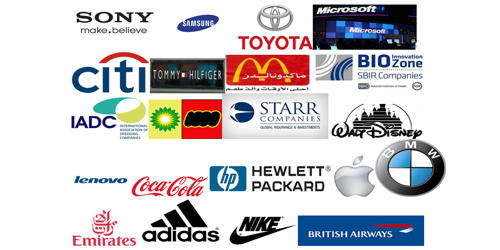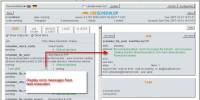Multinational Company
A multinational company (MNC) is a business that operates in many different countries at the same time. It is an enterprise that has an integrated global philosophy encompassing domestic, as well as overseas operations. MNC can have a positive economic effect on the country where the business is taking place. MNC’s offer the host country several benefits. This is a more complex form that usually has fully autonomous units operating in multiple countries: Shell and Philips, for example, two MNC’s have given the foreign subsidiaries a great deal of latitude to address local issues such as consumer preferences, political pressures and the like. MNCs create competition and break local monopolies. High turnover and many assets, aggressive marketing are some of the features of Multinational Companies.
By operating in a country, investment, employment, and income levels increase. MNC’s have their central head office in the home country and secondary offices, facilities, factories, industries, and other such assets in other countries. The host country’s industries also get the latest technologies from abroad through MNCs. These subsidiaries are frequently run as independent companies without much integration. Economists say this makes local competitors try harder, which leads to superior products and services. The spread of multinationals across the planet is part of the rapid economic globalization which is taking place, i.e. the mobility of people, technology, capital goods, and services across borders. Products and services of MNCs are sold around various countries that require global management.
A multinational company generally has offices and/or factories in different countries and a centralized head office where they coordinate global management. Today’s international markets are almost unavoidable even for smaller companies. These companies, also known as international, stateless, or transnational corporate organizations tend to have budgets that exceed those of many small countries. By producing more goods because the MNC operates there, the host country can export more and reduce imports – this improves its balance of payments. The influx of Chinese manufacturing and less expensive Asian labor has pushed large and small companies to invest in operations and expansions overseas.
Features of a Multinational Company –
- High Turnover and Many Assets – For example, Apple has a market capitalization of 1 trillion dollars. This is bigger than the entire economy of Saudi Arabia!
- Control – MNCs have unity of control. The business operations in the host country have their own management and offices, but the ultimate control will still remain at the head office.
- Technological Advantages – This allows them to use the best technology available to boost their products and their company. Most companies invest huge money in their Research & Development Department to invent and discover new technological marvels.
- 4. Management by Professionals – They have suitable managers to take care of their business operations, technology, finances, expansion, etc.
- Aggressive Marketing – MNCs can spend a lot of their money on marketing, advertising, and promotional activities. They target an international audience, so effective marketing becomes necessary.
















